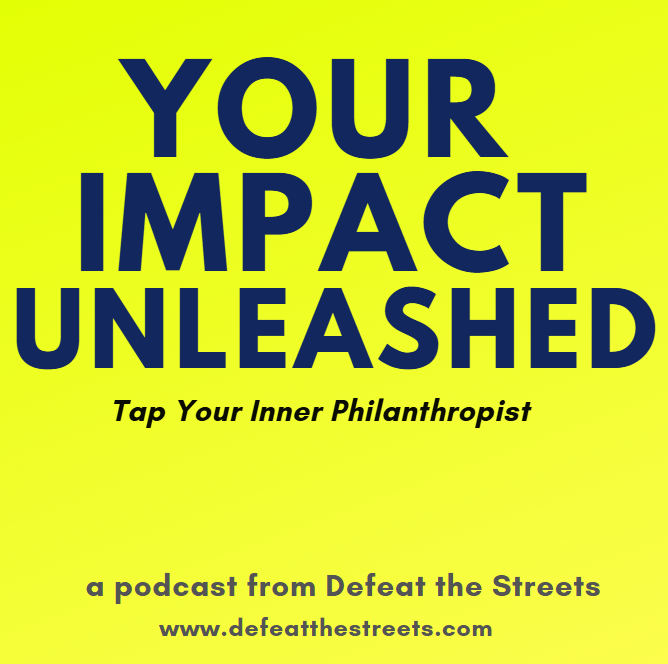What does it look like to turn “philanthropy” into a daily practice—inside clinics, classrooms, and neighborhoods? In our latest episode of Your Impact Unleashed, Dr. Joanna Michael shows us.
An ethnobotanist turned public health scholar and medical educator, Dr. Michael is the Director of the Urban Medicine Program at the University of Illinois College of Medicine and teaches at UIC’s School of Public Health. Her path winds from fieldwork in the Guatemalan jungle to Fulbright fellowships, museum curation, and now a Chicago-based program that pairs medical students with community partners on the South and West Sides.
The spark: a “tap” at 12
Joanna traces her calling to a family trip to Mexico, where a barefoot family friend pointed to plants and named their healing uses. That moment—plants can heal people; culture carries wisdom—sent her toward ethnobotany, pharmacognosy, and ultimately a career focused on the human side of health.
Bringing humanity back to medical training
In Urban Medicine, Joanna mentors small cohorts of medical students who commit to serving under-resourced communities. The curriculum centers on belonging and context:
- Healing circles & cohort care: Students meet in spaces that normalize vulnerability, grief, and joy—because healers need healing, too.
- Asset maps & neighborhood reality: Before advising patients to “walk 30 minutes,” students map the actual conditions—safety, transit, food access, green space—so recommendations are realistic.
- Community partners, long-term: Clinics, shelters, youth orgs, and mentors from the neighborhood co-lead the learning—making expertise bidirectional, not top-down.
“I could teach content all day, but what transforms students is a sense of belonging—for them, for patients, and for community partners.”
“Food apartheid,” not “food deserts”
Language matters. Joanna uses “food apartheid” to highlight that a lack of healthy food options isn’t a natural occurrence—it’s a policy outcome. Reframing the issue helps students see systems, not deficits, and value the culture and vitality that already exist in the neighborhoods they serve.
Two stories that stayed with us
1) From listening to policy change (Sickle Cell):
Urban Medicine students sat with families in a Sickle Cell support group. Hearing kids describe pain crises at school—and a lack of staff awareness—students gathered narratives and brought a resolution to the American Medical Association to improve Sickle Cell training for educators. It passed unanimously. Advocacy takes many forms; this one began with listening.
2) Recipes, dignity, and the pantry aisle (Shelter partnership):
A student started cooking classes with women in a shelter—beginning with their favorite recipes, then adapting them to DASH (heart-healthy) guidelines. Another student shopped exclusively at the same pantry residents used and built recipes from what was actually available. They published a community cookbook and kept the program going year after year. That’s what “meeting people where they are” truly looks like.
Philanthropy = culture of caring
If the word “philanthropy” feels distant, Joanna brings it close: care that’s embodied, local, and reciprocal. Her students don’t just volunteer; they co-create with neighbors, honor lived experience as expertise, and celebrate milestones together—from match day to community wins.
Why this episode matters
- It models a way to train professionals without extracting from the communities they serve.
- It shows how small, consistent acts (a circle, a class, a map, a shared meal) scale into systems change.
- It reminds us that belonging is the precondition for learning, healing, and action.

